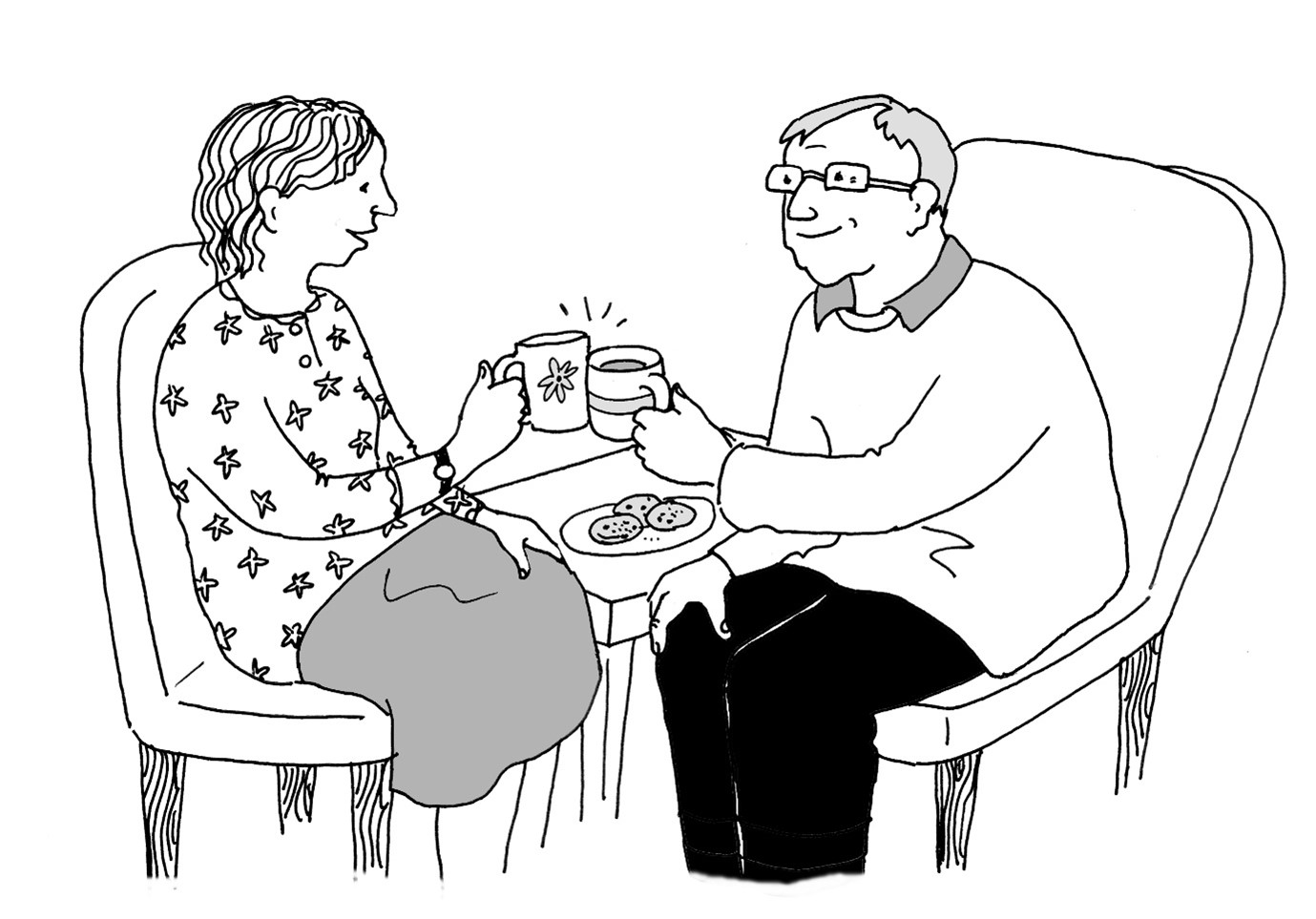Being present in lockdown with someone living with dementia

These are very strange times indeed, and people with dementia and their families face some particular difficulties. During Dementia Action Week in May 2020 I was due to speak on behalf of the charity Understanding Dementia about lessening the impact of the condition on those who live with it. That being cancelled at a time when most of the community services normally available to carers also ceased was a double whammy for some.
I have written elsewhere about how to explain Covid-19 to someone with dementia and staying in touch with relatives in care during Covid-19. But for many carers, simply coping with the mundane day-to-day care for a family member, without access to any of the usual lunch clubs, day centres or other activities to provide support and respite, was relentless.
Coping strategies are hard to come by and even harder to use in lockdown with the added challenges that brings. Let’s recognise how exhausting these are: the intense round of shopping, whether that involves socially-distanced queueing, struggling to get online delivery slots or entrusting lists to kind neighbours or unfamiliar volunteers; cooking and cleaning with no visitors coming in to show appreciation; having to give personal care when regular home care visits are disrupted; and generally trying to keep the person on an even keel when we may feel we are falling apart ourselves.
Recently there has been a lot of discussion about mindfulness. This is the practice of focusing our awareness on the present moment as a form of therapy. There have been webinars and discussion threads on social media, and courses in mindfulness being set up for people with dementia and their carers. But in my experience, people living with dementia can often teach the rest of us a thing or two about it.
Despite the popular belief that they tend to live in the past, people with dementia are often better at focusing on the here and now than the rest of us. In fact they live in the present far more than we may realise, and often more than their families do. Carers are usually too busy thinking about the future – the next meal, the next shower or bath, the next load of washing to be done, hoping that the next night will be more peaceful than the last, or exploring options for long-term care. All these require so much brain power that it’s hard to live in the present moment.
But at a time when there is so much uncertainty all around, it becomes especially important to notice the physical sensations that can keep us grounded. And if we can somehow tune in to the wavelength of person we are caring for, some of the triggers for patterns of behaviour can start to make sense. It might be a piece of music that evokes a special memory, or the way the light falls on a tree outside the window at a certain time of day that triggers a feeling of needing to be somewhere else. If we can enter in to that moment with the person, we may discover what the trigger is, identify with their feeling, and have some insight into where that ‘somewhere’ might be.
Recognising those feelings and validating them are very important. They can represent the first steps away from distress and towards a feeling of well-being and even contentment.
For more information, contact me via the website https://understandingdementia.co.uk.
Shirley Pearce – 02/06/2020



